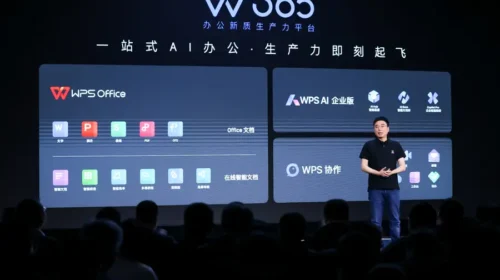From software to the skies, China’s self-sufficiency drive meets economic reality

“Beijing has demonstrated time and again in various industries that it has a big appetite for losing money.”

By Doug Young & Rene Vanguestaine
Two recent developments, one concerning word processing software and the other a homegrown passenger jet, are providing a revealing snapshot of Beijing’s campaign for technological independence. The incidents highlight a recurring theme: the clash between political ambition and market logic. We believe they reveal the considerable hurdles China faces in its effort to replace leading Western technologies, from the software on its computers to the planes in its skies.
The first signal emerged from what some are calling Beijing’s “delete America” campaign. Astute observers noticed that a recent policy document on rare earth export limits was created not with Microsoft Word, but with software from a domestic player, Kingsoft (3888.HK). This immediately fueled speculation that government agencies and state-owned enterprises might be ordered to replace American software with homegrown alternatives like Kingsoft’s WPS. While the company’s shares saw a brief, sharp rally, the excitement subsided as others dismissed the event as a potential one-off.
We think this is more than just a bureaucratic anomaly. The move fits squarely within the major theme of China’s current Five-Year Plan: achieving technological self-sufficiency. The use of homegrown software could represent a multi-pronged strategy. On one hand, it may be a negotiating tactic aimed at the U.S., a message that China can inflict pain on American tech giants like Microsoft. On the other, it mirrors actions from Washington to protect its own government institutions from foreign technology, in this case reflecting Beijing’s belief that Microsoft could be a conduit for Chinese data to reach the U.S. government.
The Chinese government is a dominant force not just in regulation but in business, making its purchasing decisions profoundly important. It has previously sent clear messages to Chinese companies, both state-owned and private, to prioritize domestic products, such as favoring locally made chips over those from Nvidia (NVDA.US). While the corporate world tends to make decisions based on economic reality, government influence is a powerful factor. However, this push may face headwinds in the consumer market. We have heard from Chinese friends who complain about the “nickel and dime” nature of WPS, which, though technically free, requires numerous small payments for full functionality.
Grounded ambitions
Moving from software to aviation, a setback for China’s homegrown C919 passenger jet offers another case study in the collision of politics and economics. The aircraft, Beijing’s answer to the Boeing 737 and Airbus A320, has been slowly integrated into the fleets of China’s state-owned airlines since its first commercial flight in 2023. However, its overseas ambitions just hit a significant snag. Vietnamese budget airline VietJet (VJC.VN) has reportedly decided against continuing its lease for two C919s after a six-month trial.
Sources emphasized the decision was cost-related, not due to the jet’s performance. The leasing arrangement included crew from Chengdu, whose labor costs were reportedly much higher than what VietJet would pay a local crew. The initial deal itself appeared politically motivated, announced shortly after a visit to Vietnam by Chinese President Xi Jinping. Now, economic reality has prevailed.
We believe this outcome was predictable. The business model of successful budget airlines like Ryanair is built on radical simplicity, most notably by relying on a single family of aircraft. This strategy creates massive economies of scale by streamlining maintenance, spare parts inventory, and pilot and crew training. VietJet, which already operates both Boeing and Airbus jets, was stretching its own model by adding a third aircraft type. From a purely business standpoint, the decision to diversify into the C919 made little sense for a low-cost carrier.
So, is this truly a setback? In our view, it is primarily an economic decision. The domestic situation in China is entirely different. The country’s massive state-owned airlines will continue to be forced to buy the C919. This is not about economics; it’s about politics, national pride, and global ambition. The Chinese government has demonstrated time and again that it has a big stomach for losing money to prop up industries of national interest.
To sell the C919 to the world, China must first prove its viability at home. You cannot tell global airlines to buy your plane if your own carriers are not using it extensively. Therefore, we expect Chinese airlines will keep buying the C919 to build a track record. From there, Beijing will likely use its political leverage and offer incentives like cheap loans to pressure nations in the Global South to become customers. It’s a matter of face: the project cannot be allowed to fail.
About China Inc
China Inc by Bamboo Works discusses the latest developments on Chinese companies listed in Hong Kong and the United States to drive informed decision-making for investors and others interested in this dynamic group of companies.
Subscribe to China Inc on your favorite app:








